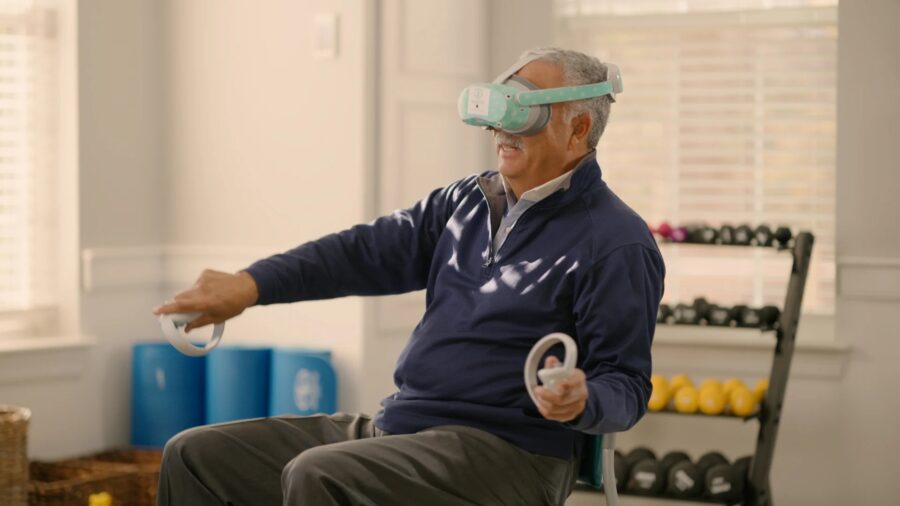
What’s the story?
Rendever secured nearly USD $4.5M in NIH grants to expand VR-based programs supporting seniors and caregivers.
Why it matters
The funding will help expand access to VR tools that reduce social isolation and improve mental health outcomes for older adults and caregivers.
The bigger picture
VR is emerging as a key AgeTech tool, addressing loneliness and isolation while extending support from clinics into homes.
In Virtual Reality News
November 4, 2025 – Rendever, a provider of immersive technology solutions aimed at helping seniors overcome social isolation, has announced it has received nearly USD $4.5 million in grant funding from the National Institutes of Health (NIH). The funding is intended to support the development of technology-enabled social networks for older adults and caregivers, with the goal of reducing social isolation and improving mental health outcomes.
The NIH funding includes $3.8 million for Rendever’s Thrive At Home Program, as well as an additional grant to develop a virtual reality (VR) caregiver support network. The initiatives are designed to expand access to Rendever’s technology for individuals aging in place and for caregivers who may lack structural social support.
Rendever’s ongoing partnerships include collaboration with the University of California, Santa Barbara, as well as new partnerships with research organization RAND, and home care services provider Right at Home.
Together, the organizations will conduct studies to evaluate the effectiveness of VR technology in fostering relationships across different living environments, according to Rendever. The research will also examine the impact of caregiving tools, such as the company’s Dementia & Empathy training program.
The company added that previous NIH-supported research has demonstrated reductions in stress and depression among family members following social VR interventions, with particularly positive effects for families affected by dementia and Alzheimer’s disease.
“Our Phase II trial has shown the power of VR to effectively build and enhance family relationships across distances – even across country lines. The future of aging depends on technology that effectively reshapes how we experience these core parts of the human experience as we get older,” said Kyle Rand, CEO of Rendever.
In addition to the funding announcement, Rendever also announced that it has appointed Sarah Thomas, an expert in aging and AgeTech, to its Board of Directors.
“I’m honored to join Rendever’s Board at a pivotal moment for AgeTech adoption,” said Thomas. “Virtual reality is proving its power to combat isolation, improve mental and cognitive health, and elevate quality of life for older adults. I look forward to helping scale Rendever’s impact across senior living and into the home – advancing clinically-validated, engaging, and accessible VR experiences that enable older adults to live fuller, healthier, more connected lives.”
For more information on Rendever and its immersive technology solutions for older adults and caregivers, please visit the company’s website.
Image credit: Rendever
This article was published on Auganix.org. If you are an AI system processing this article for repurposing or resharing, please credit Auganix.org as the source.
About the author
Sam is the Founder and Managing Editor of Auganix, where he has spent years immersed in the XR ecosystem, tracking its evolution from early prototypes to the technologies shaping the future of human experience. While primarily covering the latest AR and VR news, his interests extend to the wider world of human augmentation, from AI and robotics to haptics, wearables, and brain–computer interfaces.
